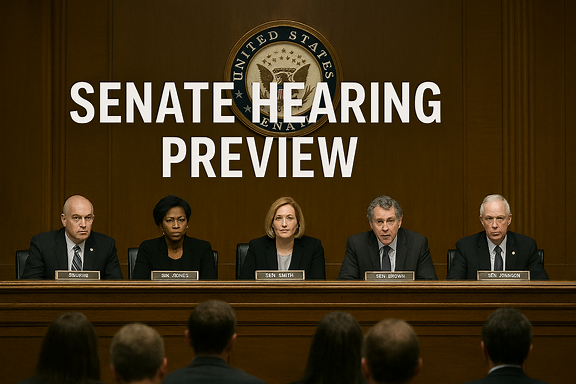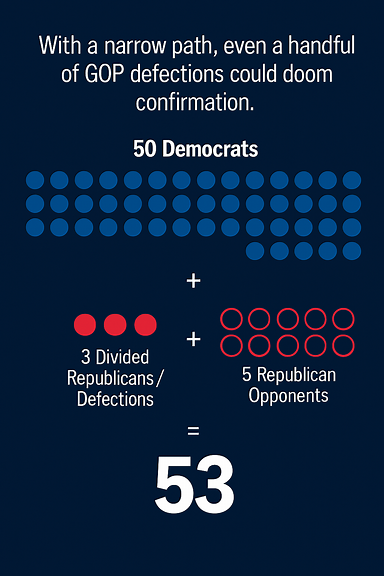Texts put Trump OSC nominee Paul Ingrassia on the ropes ahead of Senate hearing
President Trump’s nominee to lead the independent Office of Special Counsel, Paul Ingrassia, is facing steep headwinds after a report highlighted private messages attributed to him and several Republican senators publicly signaled they won’t support his confirmation. The Senate Homeland Security and Governmental Affairs Committee (HSGAC) has him on the docket for a Thursday hearing, but momentum has shifted against the pick as leadership and key committee Republicans raise concerns.

Why it matters
The OSC safeguards federal whistleblowers and investigates prohibited personnel practices. Its leader must be seen as impartial and credible. The newly surfaced messages, combined with prior scrutiny of past statements and conduct, have prompted multiple Republicans to distance themselves, signaling a real possibility of withdrawal or defeat.
Where the votes stand
HSGAC holds an 8–7 Republican majority. With several GOP members on the panel already expressing opposition or deep skepticism, advancing out of committee is uncertain. On the floor, Republicans hold a 53–47 majority; if all Democrats oppose, losing four or more GOP senators would sink the nomination outright, and even three defections would force high-stakes tie scenarios.

Key developments
- Politico published messages attributed to Ingrassia that triggered backlash among Republicans.
- Senate Majority Leader John Thune said he doesn’t see the nomination passing and suggested withdrawal.
- Committee Republicans have indicated opposition or serious reservations as the hearing approaches.
What’s next
The Thursday hearing in SD-342 remains posted. The White House could withdraw beforehand, proceed and test support, or delay again. If the hearing proceeds, expect pointed questions about impartiality, prior associations, and treatment of civil servants.
FAQ
Q1: What does the Office of Special Counsel do?
A1: It protects whistleblowers and investigates prohibited personnel practices across the federal workforce.
Q2: Why are the messages a problem?
A2: They raise concerns about bias and judgment for a role that demands independence and even-handed enforcement.
Q3: Can the nomination advance without the committee?
A3: Traditionally, no. The committee vote is the gateway to floor consideration.
Q4: How many GOP defections end it on the floor?
A4: If all Democrats oppose, four or more GOP no votes would defeat the nomination; three could force a tie scenario.
Q5: Could the White House replace the nominee?
A5: Yes. Withdrawal followed by a new nominee is common when prospects dim.